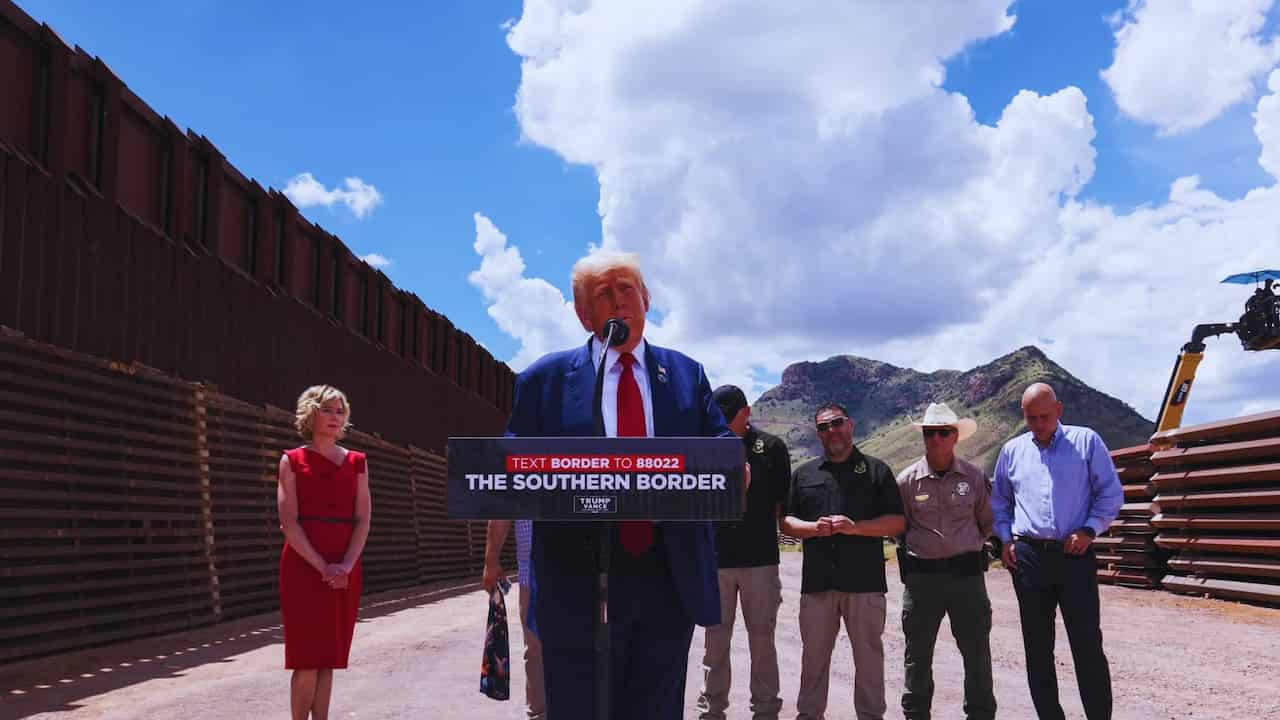Border Anxiety Intensifies: Trump’s Victory Sparks Rush at Southern Crossings
In a dramatic turn of events following Donald Trump’s presidential victory, migrants across Latin America are accelerating their journeys to reach the United States before potential policy changes take effect in January 2024.
The race against time is evident both at Mexico’s northern border and in the treacherous Darien Gap, where thousands of hopeful migrants are making calculated decisions about their futures.
At the House of Mercy and All Nations shelter in Nogales, Mexico, Ivan Castro Santos, his 19-year-old wife, and their four children—including year-old triplets—represent just one family among many waiting for their chance to enter the U.S.
Through an interpreter, Castro Santos explains their flight from crime-ridden Guerrero, Mexico: “We left to protect them,” he says, glancing at his young children.
The shelter has become a temporary home for families from across Latin America, with children making up half of its residents. All share a common goal: finding safety and work opportunities in America.
The Biden administration introduced the CBP One app, a digital lifeline that serves as the primary legal gateway for migrants to schedule border appointments. However, Trump’s victory has cast a shadow over this system’s future.
In Panama’s Darien region, Jesús Chávez, a 34-year-old Venezuelan pastry chef, embodies this urgency. “We’re trying to arrive before January,” he explains, referring to Trump’s inauguration date. Chávez and his group of six made the difficult decision to leave Venezuela after their country’s controversial July elections.
The impact of Trump’s victory is creating contrasting reactions on different sides of the border. Nogales, Arizona resident Anna Parada supports Trump’s stricter approach, stating, “I really saw the Biden administration being a little bit too lax on immigration,” a sentiment that many border-state voters share.
However, for migrants like Luz Angela, a Bolivian doctor seeking asylum with her 9-year-old son, the election results brought immediate anxiety. “I felt scared because he promised in his speeches that they would deport all the migrants,” she reveals. Angela, who has been waiting seven months for a CBP One appointment, currently volunteers her medical expertise at the shelter.
Immigration experts warn of potential consequences. Alba Jaramillo, a Tucson-based immigration attorney, predicts that Trump’s win and the possible termination of the CBP One system might push more migrants toward dangerous illegal crossings. “They’re desperate,” she emphasizes, “having given up everything to come to the north.”
The numbers tell their own story. Panama has recorded nearly 289,000 migrant arrivals through the Darien Gap this year, with Venezuelans making up 69% of crossings. While this represents a 38% decrease from last year, officials worry these numbers could spike as migrants rush to beat potential policy changes.
U.S. border officials are particularly concerned about a possible surge in illegal crossings before Trump’s January inauguration. This comes after months of reduced border crossings, which were achieved due to Mexico’s increased enforcement efforts and President Biden’s June policy that rendered most illegal crossers ineligible for asylum.
As the January transition approaches, thousands of migrants face an impossible choice: accelerate their dangerous journeys north or risk facing even tougher border policies under a new administration. For families like Castro Santos who dream of settling in Houston and working in restaurants, the coming weeks could determine their entire future.
The human impact of these political changes continues to unfold at shelters, jungle paths, and border crossings across the Americas as migrants and border communities alike prepare for what many expect to be a significant shift in U.S. immigration policy.
